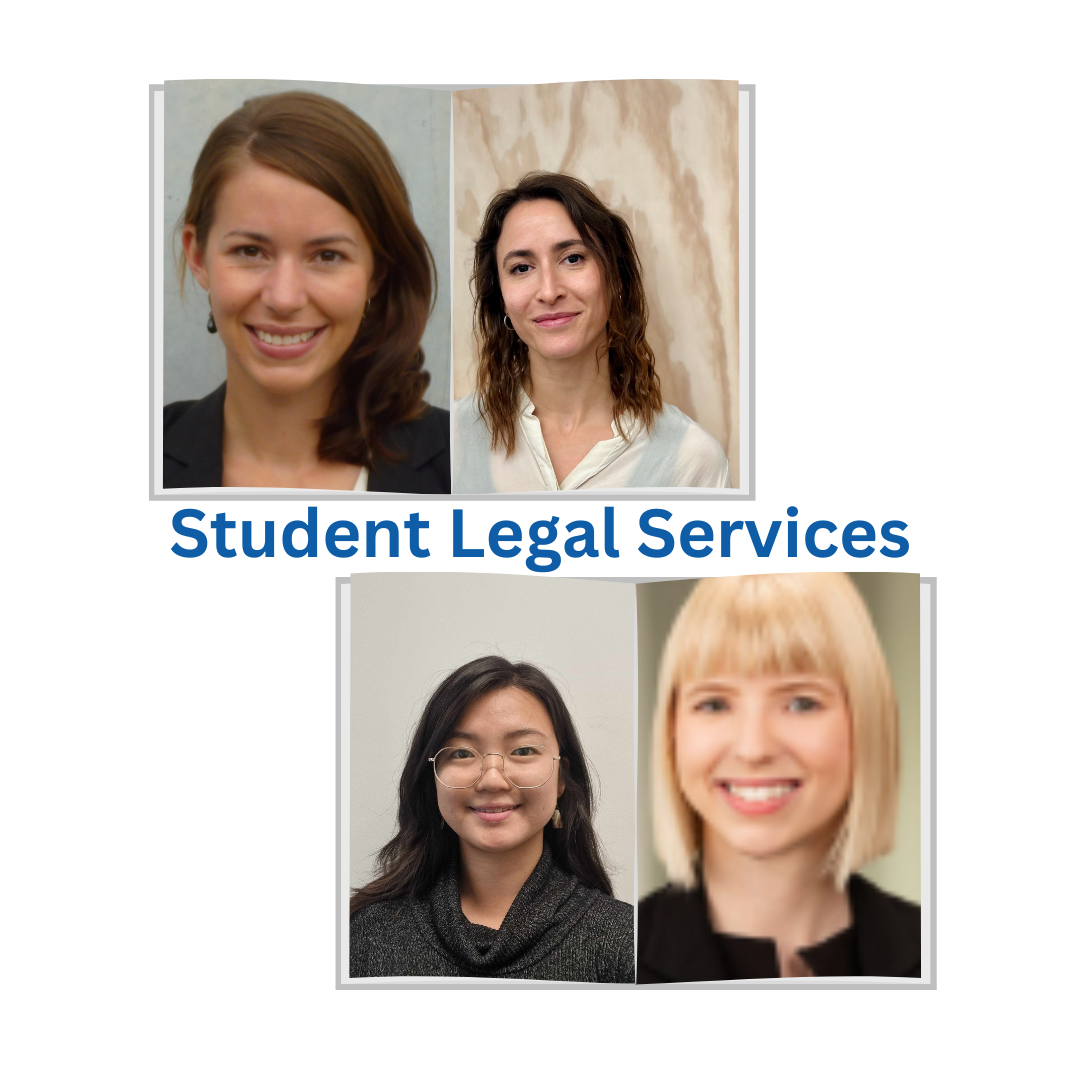Student Legal Services
BIOS:
Meredith Hagger is a Principal Solicitor at Youth Law Australia, a national community legal centre that helps young people under 25, anywhere in Australia, with
any legal problem. Youth Law Australia has partnered with the Tasmanian University Student Association to run a Student Legal Service for students of the
University of Tasmania. Meredith has been a solicitor for over 10 years, and is a co-chair of the National Student Legal Service Network. Meredith is passionate
about the right to education, and helping students in all kinds of educational settings with legal issues.
Isabelle Butler is Senior Lawyer at the UMSU Legal Service, a generalist community legal centre that provides free legal advice, representation and financial
counselling to current University of Melbourne students. Isabelle has specialised in student legal issues for 7 years, previously gaining diverse experience in private
practice and research roles. She likes to maintain her connection to the student experience by regularly returning to be a student herself, and works closely with
community legal sector colleagues around Australia to highlight student legal issues in broader efforts for law reform. Isabelle also chairs the Victorian Student
Legal Services Network and co-chairs the National Student Legal Services Network.
Kathryn Lee is a Senior Lawyer at the ANU Students’ Association, an ACT community legal centre that provides free legal advice to all Australian National University
(ANU) students. Kathryn first came to Australia as an international student and has found her place specialising in student legal issues. She has strong community
ties to the community at ANU and uses her networks to form meaningful connections with both students and staff. She is passionate about ending discrimination
in all facets of life and helping international students in their journey throughout university and beyond. Her main areas of practice are in migration law, tenancy
law, university accommodation (occupancy) law, combining it with her experience in civil litigation. Kathryn is a co-chair of the National Student Legal Service
Network.
Sarah Loewy is a Senior Solicitor at Youth Law Australia, a national community legal centre that helps young people under 25, anywhere in Australia, with any legal
problem. Sarah works in the Student Legal Service providing free legal advice and assistance to students at the University of Tasmania. Sarah has been a solicitor
for over five years, with a focus on civil law and litigation. Sarah is also a university student herself.
SESSION OVERVIEW: Youth Law Australia, the ANU Students’ Association and the UMSU Legal Service will run two sessions across the conference.
Session 1: Student Legal Services and Their Role in Supporting Student Retention.
Many universities in Australia offer a legal service to their students. However, there is considerable variation in the form and offerings of these services. In this
presentation, solicitors from three different student legal services, in three different states and territories, give an overview of student legal services in Australia,
including what they do and who they help. This presentation will consider ways of measuring the impact of these services, and include case studies illustrating how
student legal services can make a difference in supporting students throughout their university journey.
Session 2: Education Law and How Student Legal Services can Support Student Advocates and Student-led Services in Their Advocacy to the University.
Many universities in Australia offer a legal service to their students. Often, these services work closely with student advocates on matters involving the university,
and in making or receiving referrals. They also support student-led services. This presentation will outline common areas of law that relate to the experiences of
university students in their education journey. It will consider when Student Legal Services can add value to the work of student advocates and student-led services,
and when and how lawyers, students and advocates can work together effectively.

